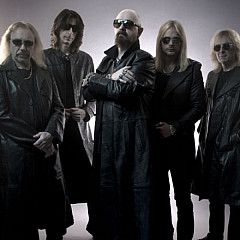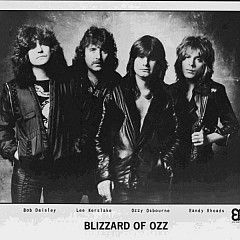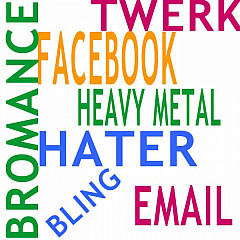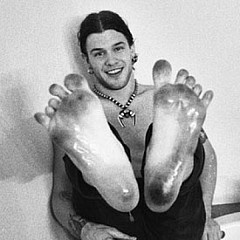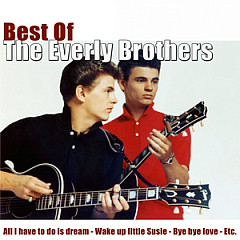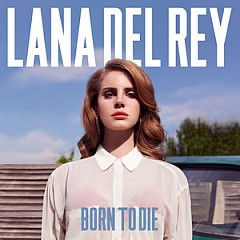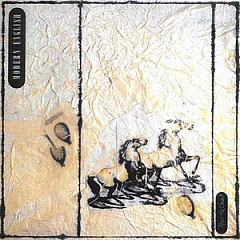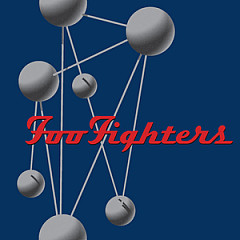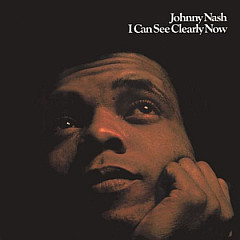Skip's talents as a songwriter have been solidified in recordings not only by himself, but top shelf talent such as Bryan White, Collin Raye, Kenny Chesney, Reba McEntire, Diamond Rio, and Clint Black - to name a few - have all loaned their vocals to Skip's words. And he's in the process of recording his own version of his hits in a 3-disc library. A single disc wouldn't hold them all.
 Shawna Ortega (Songfacts): I've read a lot about you, and I know that you are a very prolific storyteller, particularly with your songs. So the first song I'd like to talk to you about is "I Believe."
Shawna Ortega (Songfacts): I've read a lot about you, and I know that you are a very prolific storyteller, particularly with your songs. So the first song I'd like to talk to you about is "I Believe."Skip Ewing: "I Believe" was the very first song I ever wrote on my acoustic piano. I had plenty of room to put a piano in my house because I didn't have any furniture, so I went out and got a bunch of straw bales and put them in the house for everyone to sit on so that they could be inside after a Halloween candy gathering. So it was a piano and all these straw bales for a while.
I stayed up most of the night playing every note on that piano I could, and pushing the sustain pedal, and then letting it go, and then pushing it again. And everything I invited to sing on that piano, the notes continued. I realized that when we invite a note to sing, it sings for a long time. Even after you take your hand off the key, it's still singing. And that made an impression upon me about the way people are, especially souls that have touched us in our lives. My grandmother was a big influence on me. She's not with us anymore, but many of the notes that she played, they're still singing, that's for sure. So I really sat with that a good bit, and I began to write a classical piece, I wanted it to feel as though it was inviting something down to Earth, the actual theme of the music, the right-hand theme of the piano.
The next day Donny Kees came over and I shared with him all this stuff through my somewhat sleepy eyelids. And he just immediately launched into talking to me about things that were going on with his mother and with his family. And typically I talk through things a long time before I write them. I really know where I'm going and we try to develop a good understanding of what we want to say and to whom we're saying it, and about whom we're speaking. And that was just a wonderful experience and conversation between Donny and myself, talking about the way people touch us in our lives. Not necessarily life and death. Many people have taken it that way, because in the lyric it says, "When we die, our life goes on, it doesn't end here when we're gone." That's one of the ways that we continue. But I think that energies are put into play a number of ways. Someone can have been a part of your life for a short time, you may never meet that person again, that doesn't mean that they're gone from the world, but it also means that maybe part of what they offered you still has a great deal of presence in your life, and makes a difference. And that's what we wrote that song about.
Songfacts: "The Gospel According To Luke," which is on your new CD - who is Luke?
Skip: On the Hits: Volume I that we just recorded, while we were recording the record, one of the engineers I was working with, while the harmonica was playing "Amazing Grace," he asked me a question on the talkback, which means while I have my headphones on he can talk to me while it's coming up. He said, "Hey, was this a real story?" And I explained to him what had happened very briefly. And what I said to him we actually kept put on the record. Wasn't our original intention, and we just thought, Well, that's kind of cool. So there's a really brief 4-5 line explanation of the fact that something did happen. And there really was a place called the Daylight Café. And Don Sampson, the guy I wrote it with, my dear friend, it was his idea to speak from that, about the Gospel according to Luke, and Luke being a person, being this guy, Luke, who we hadn't identified, being his philosophy, his way of looking at the gospel. Like his own truth, whether it was biblical or not.
The Daylight Café is no longer there. It was 8th Avenue, over near Acuff-Rose, the original home of Acuff-Rose before they moved into Music Row. Acuff-Rose is the publishing company for which Hank Williams wrote all of his catalogue. They house all of Hank Williams' catalogue. Don Sampson and I used to go in to Acuff-Rose really early in the morning sometimes to write. We would just write all the time, however much we could, and we'd say, "Please, please help us invent something that makes sense to someone so that we can afford to eat." There was no money in having a publishing deal, that's for sure.
Well, this is the kind of chill-bumpy thing that happened. We started writing "The Gospel According To Luke" right there in that Daylight Café. And one morning this guy walked across the street, and he really struck a chord in us. And we went, "These are real people we're talking about." Sometimes we write a song, and we might make up a character. Except that when we're talking about people who have touched us, or who we see something… any number of ways of looking into our own life, there are real people that we see in our lives that move us. And this guy that walked by the front of the Daylight Café, I don't know his name, I never met him, I didn't talk to him, but even the way he walked was something that impressed something upon us. And so we began writing it right there at breakfast. And we walked back to Acuff-Rose by about the time that it opened, and we sat in the writer's room there, and we worked on this song, on the chorus and the first two verses. We didn't finish the song. The last verse, the one about "a week ago Wednesday," when he talks about what he does with that, we didn't know quite what to do. We looked at it, we thought, Gosh, we know where we want to go, we know how we feel about this guy, and it's such a powerful thing, he was offering us a powerful understanding. But what in the world do we have him say?
And then we realized while we were sitting in there that all of Hank Williams' catalogue, everything he'd recorded in the gospel music category, he'd recorded as "Luke the Drifter." We were sitting in the Acuff-Rose building where his whole catalogue was written, and it just struck us. And Don looked at me, kind of had that weird look in his eyes, and I went, "We're done writing today, aren't we?" "Yeah, we are."
So it was nearly a year later before we knew what to say. We'd gotten together a number of times, and finally we knew what to say. We went, "We have to somewhat make him a bit of a hero. He's got to kind of practice what he preaches. That's the thing. He's got to give to his own brothers, even from his limited means." And that was that. We knew where to go. And Don Sampson is a blessing. He's just a for-real guy. And writing songs like that with him was always a practice in understanding ourselves and other people more deeply. I have met a few really genuine hearts in the writers that I've written with, and Don is two of them. (laughs)
Songfacts: I believe in no such thing as coincidence. So when you guys were in that building that day, that wasn't a coincidence.
Skip: Well, I think that we never know what's going to be offered us. And my own personal philosophy is that we often get out of life and love and our own pursuits what we're willing to put in them. And that also has to do with love and understanding. If we spend time understanding ourselves and other people, we are sometimes offered a kind of understanding we would never have if we didn't aspire to have it.
So I think by sitting and looking at something when we write songs or whatever, if we weren't looking out the window, that wouldn't have happened. If we weren't sitting in that Daylight Café, it wouldn't have happened quite that way. The idea would have still been there. But I think that we would have used whatever we were offered to look into that idea. But what a gift it seems now to look back and see that someone else's difficulty and the way they were handling it inspired us to hopefully be better people ourselves.
Songfacts: I read that you named your daughter after a song that you wrote. A Bryan White song, "Rebecca Lynn."
Skip: Again, Don Sampson and I wrote that together. "Rebecca Lynn" was a song that I sang on one of my records that my producer didn't want me to record. In fact, he finally said, "Fine, record it, but just do kind of like an acoustic version of it, and let's be done with it." He didn't think it was a hit at all, didn't like the song. This is the same producer who didn't like the song "Love, Me," just so you know.
Songfacts: Oh, shoot, no.
Skip: Yeah. (laughs) At any rate, we talked about having children, and we were talking about being a child. I enjoy talking and looking deeply at the things about which we're writing, and why we're writing them. And I think this leads us to a lot more understanding. And I still believe the more we endeavor to do that, the better we know about people. That's who we write songs for, we write songs for other people. Or at least I do. I write songs that will make a connection with other people, and because I believe in the hearts of other people. I believe that the audience who listens to songs, they are far more discerning than many people give them credit for. I have written songs that some people would say, "Oh, come on, people aren't going to get that." You know what? They do get it. And as Don and I were looking at our own childhood, and the things that we had and the things that we didn't have, and those things we thought were universal; one of those things being nursery rhymes. No matter what kind of childhood you had, at some point you come across the nursery rhyme. And that can have a positive connotation or a negative connotation. But a great view of it is a positive connotation, because it means something to share that with a child, too. Sharing nursery rhymes is something that enriches the adult who shares it with a child.
 And so we thought, Well, wouldn't it be neat to write an adult kind of song with that. We certainly weren't the first ones to ever do that, but to wind them amongst each other and have them mean something a little bit different than they would have if they were separated, that was a fun challenge. And we thought, Well, what would we name a child? If we could just think of a beautiful name… and Rebecca Lynn was something we both agreed was just lovely. I thought, Gosh, if I ever have a daughter, I will name her Rebecca Lynn. Well, Rebecca's mother, from whom I'm now divorced, she loved that song. And she heard it on my album long before Bryan White recorded it. Because Bryan White heard it on my album as well. I didn't have to pitch him that, he already knew that song. And so Rebecca's mother said, "Boy, that's me, too. If I ever have a daughter, I want to name her Rebecca Lynn. That's one of my favorite songs." And I said, "Well, that works for me." (laughs)
And so we thought, Well, wouldn't it be neat to write an adult kind of song with that. We certainly weren't the first ones to ever do that, but to wind them amongst each other and have them mean something a little bit different than they would have if they were separated, that was a fun challenge. And we thought, Well, what would we name a child? If we could just think of a beautiful name… and Rebecca Lynn was something we both agreed was just lovely. I thought, Gosh, if I ever have a daughter, I will name her Rebecca Lynn. Well, Rebecca's mother, from whom I'm now divorced, she loved that song. And she heard it on my album long before Bryan White recorded it. Because Bryan White heard it on my album as well. I didn't have to pitch him that, he already knew that song. And so Rebecca's mother said, "Boy, that's me, too. If I ever have a daughter, I want to name her Rebecca Lynn. That's one of my favorite songs." And I said, "Well, that works for me." (laughs)And so of course we ended up having a daughter, and we named her Rebecca Lynn. She was born in 1993. And the Bryan White record was later than that. It was in the later '90s. I want to say Rebecca was at least 3 if not older. But she was old enough to recognize that it was her song on the radio, and that Dad had wrote it, and who Bryan White was.
And right when that song came out was around the time when I was sort of officially getting divorced. And there was a connection between my daughter and I because of that, that was invaluable for our relationship. One of the most important relationships to me, and for me. I think I have learned more about myself being a dad, and in looking at the way my daughter learns, and looking at myself and what I have to offer her and why I have to offer it, and how I can be better at that, has made a huge difference in my life.
Songfacts: You strike me as somebody who is always studying, always learning, always open to experiences.
Skip: Oh, you're right on the money. I don't feel that we're really alive unless we show up for our own life. If you're gonna be here, show up.
I'll tell you another fun story that you might enjoy. It's not exactly about the song, but it's an insight that you might enjoy.
Songfacts: Absolutely.
Skip: This past Mother's Day on Regis and Kelly, they had a special. And the special, of course, was on mothers. There was a mother on the show whose son had died in a motorcycle accident, and her wish was to meet Collin Raye, because one of her favorite songs of all time was "Love, Me." And on the headstone of her son's grave, she had written, "Between now and then, 'til I see you again, I'll be loving you, love, Me." She had that put on his headstone. Which is huge. That's just a big, big deal to me.
Well, what I found interesting was she wanted to meet Collin Raye, who was the singer of the song. And yet she wrote the words that Max T. Barnes and I wrote, on the headstone. And it was the words that were really important to her. She didn't mention Max and myself, Collin didn't mention Max or I, Regis… none of them mentioned us at all. And I had a couple people call me feeling outraged. They were like, "Oh my gosh, you guys worked so hard, and then all of a sudden you have the chance to be on national television, and they don't even mention you. They only talk about the singer." One of them said, "The woman wrote your words on the headstone, and then didn't even put your name like they would quote any poet or writer." And "aren't you angry about that?"
And I'm not. Would I have been honored to have my name mentioned? Oh my gosh, absolutely. Do I think that when the works of someone, when their words are repeated or written or featured in that way, that the person should receive fair recognition? Absolutely. Do I think that's the most important thing? No. What I think the most important thing is touching people. And the words that we wrote, and the song that we wrote, was powerful enough that without ever knowing us at all, maybe never thinking about who wrote the song, it moved her enough that of all songs written in all the world, that was the one she connected with enough to write on the headstone of the person that she may have loved more than anyone in the whole world. Now, if that's not reaching people, then I'll never do it.
Songfacts: That says an awful lot about you as a songwriter. It seems like you're the kind of person who would do it whether you were getting paid to or not.
Skip: Well, I think that there are some people who say they write because they have to. Because it's like that's the only way they can get themselves out. I think for most writers it's a form of passionate self expression. For me, I have gone through a number of phases of the reasons why I write, but the roots of it remain the same. And those are to express my heart with as much candor as possible. And to do so in order to illuminate what it is to be human, what it is to love, what it is to feel, and to reach other people. In me, that's what I needed to be doing. I started playing guitar when I was 4 years old, I don't even remember. Started writing songs, I think I wrote a song for a girl when I was 11 or something, messed around with poetry. But language, all the ways we communicate, how we communicate, even the dialogue in our own head is our experience of life and the world. And I would prefer that our experience of life have as much joy and happiness as possible. I would prefer that we endeavor to cultivate compassion and loving kindness and understanding and patience. That's with ourselves to ourselves. Our inner dialogue. And with others. And to water the seeds of those virtues in others, in a world where we never even realize that we are watering seeds, like this mother on that show. I don't know anything about her life unless the camera had been pointed in that direction, unless something had illuminated that. But I get letters from people who say, "Oh, this song moved me." Gosh, I want that three minutes to have those qualities. That's why I write. Because I can reach people, and it does that kind of thing in the world.
Songfacts: And you pour so much of yourself into your songs. With some writers, there's nothing personal in their songs at all.
Skip: No. Except that writers, a lot of people will say, "Oh, I wrote this song in 10 minutes." Well, I might respectfully disagree with that. I've never met someone who wrote a song in 10 minutes. And what I mean is that our brains, for years, are working with songs, listening to songs, feeling the ways that things go together, and what we've thought, the way we've loved, everything is a part of the song we're writing right now. I like to say the past is always a part of the present.
Songfacts: Right. I like that analogy, and it's absolutely true. Okay, you mentioned this song, "Love, Me." And I know that you were exceptionally close with your grandmother.
Skip: Well, it's not exactly about my grandmother. My grandmother and grandfather had a relationship that inspired me. And "Love, Me" was inspired by a card that I received from a girlfriend, it must have been in 1988. And she didn't sign it with her name, because she knew I would know who it was.
Well, we all do that. What struck me was not that that was a hook, but that there was such an intimacy that everyone would understand. Those are the places that I love to touch. Many of us have written, "Love, Me," or we'll use an initial, or whatever, knowing that the other person knows that. And there's a connection in that. There's an energy of acceptance and love, and closeness, intimacy there that can't be found in other spaces necessarily, especially when things are actually written.
Just on the side here; do you know that they did a study recently and found that people lie more in e-mails than they do if they write with a pen?
Songfacts: Oh, I don't doubt it.
Skip: Can you believe that? I think that people think it's less permanent.
Songfacts: And it's less personal somehow.
Skip: Exactly. At any rate, this was very personal to me, and I read it, and I reflected upon that after I had gotten on the bus. Max T. Barnes was playing electric guitar for me on the road while we were touring. And his dad and I, Max D. Barnes, had written "The Coast of Colorado" together, and several other songs. The Coast of Colorado was the title of the first album that I put out, we were friends because of this. I said, "Max, we've been talking about writing. I've got an idea, let me talk to you about something." And we went in the back of the bus, and we sat all night. And most of that night was spent talking about relationships with people who were the most important to us. I won't share with you the stories, because they're not mine to share with you. But Max T. spoke about his brother and his parents. And I spoke about everything from my first pet, my first dog that I just loved so much, and also my grandmother and grandfather. Because we were talking about the scope and power of love, and the connectivity of that across generations, and across the spiritual connectivity. And we really had a conversation. That's me, that's what I like to do when I write. I like to look deeply into that.
Well, the "Love, Me" part, I was working with that because I love to find ways to say something one way, and to say exactly the same thing and have it mean a much different thing. Because, to me, that's an invitation to look at something deeply. We looked at it the first time, and we saw one thing. We looked at it a second time, and we saw very deeply. It's like looking at the surface of water and you see the reflection on the surface. But then if you make your eyes adjust a bit you can see all the way down into the well. Yeah. It's that. And so we wrote it about a relationship with a grandmother and a grandfather, but it wasn't my grandmother and grandfather. It was just a good way to do it. And it was inspired because of them and their relationship.
My grandfather was a thoroughbred rancher in Southern California, it's where I learned a good deal about horses. And my grandfather was the kind of guy who called my grandmother "Mother" all the time. He was like, "Mother, what did I do with those boots?" and that kind of thing. And when I was a little kid, I would scramble out over the top of the kitchen window to get on an electric cart full of alfalfa hay and oats and special feed for all these individual racehorses out there, and he'd put an extra bale of hay on the back of his flatbed electric cart and let me stand up on it so that I could take these leaves of hay and put them down in the feeders, because the racehorses all have individual feeders. And, man, I thought he was the coolest thing. He was my John Wayne. Well, later I found out I wasn't related to him; she'd remarried. But it didn't matter. To me, he was my grandfather. He was the grandfather that really touched me. And my grandmother, too. In fact, my grandmother wrote the poem "Indian Elephant Tea." That's the poem for The Big Kid's Band. And at any rate, I guess they met and they got married in weeks of being together, and they were together the rest of their lives. It was just wonderful. Not that they didn't have any difficulties, but they were wonderful. So when he passed away, I know how she felt, that she could never remarry. She never really had another relationship. She had loved him, and there wasn't gonna be another Dale, and that was it. I just know how he touched her. And I also know that he was there for her and she knew she was gonna see him again. Whatever someone's spiritual or religious beliefs, if someone believes in Heaven in that space, that's how they want to feel, and that's how many people do feel. But in order to feel that way, you really have to love someone. And that's what they did. And that's what we talked about. We just took the ball of the pieces of these powerful loves and we were doing our best to weave them into a song that expressed that. It seems we did a bit.
 Songfacts: Your grandfather's name was Dale?
Songfacts: Your grandfather's name was Dale?Skip: Dale, yes, and Martha Hector.
Songfacts: Okay. Where at in Southern Cal did they live?
Skip: He had a ranch in Murrieta, and also in Chino.
Songfacts: One other song that I wanted to ask you about is "Someone Else's Star." And I know you put this on your recent CD, and Bryan White is the one I believe that made it famous, he's the guy you hit the trifecta with in that respect.
Skip: Exactly.
Songfacts: Can you talk to me about the inspiration for that song?
Skip: Sure. I remember that day because I went over to Jim Weatherly's house to write. And Jim's house was filled with antiques. This made me think about classical music – do not ask me why. (laughing)
I wish in an interview that I could illustrate things with music to you. Anyway, he had an old piano, and I was talking with him about my love for changes. I love to talk about music in a way where it's almost as though you can see and feel and smell and touch things in music, if you allow yourself to. For instance, if you watch the movie Out Of Africa, there's a piece while the plane is flying over the Serengeti, and it's just brilliant, because the music is so grounded. He made the low end of that music just solid and stable and beautiful, rolling like the land over which the airplane was flying, and left all the room in the sky for the airplane. That's what that felt like when I watched that. And I just thought he was so brilliant. It's those kinds of things that I love to think about.
Lyrics by Janet Taylor, 1806
Twinkle, twinkle, little star,
How I wonder what you are!
Up above the world so high,
Like a diamond in the sky!
When the blazing sun is gone,
When he nothing shines upon,
Then you show your little light,
Twinkle, twinkle, all the night.
Then the traveler in the dark,
Thanks you for your tiny spark,
He could not see which way to go,
If you did not twinkle so.
In the dark blue sky you keep,
And often through my curtains peep,
For you never shut your eye,
Till the sun is in the sky.
As your bright and tiny spark,
Lights the traveller in the dark,—
Though I know not what you are,
Twinkle, twinkle, little star.
He said something about, "wishing on my star, but this is the wrong star." He had a little bit of a concept of what to do with it. I'm not sure we had the title of "Someone Else's Star," but it was that sort of principle. And I said, "Ooo, I love that." There's a poem that most people don't know. It is called "The Star," and it was that entire poem. It's like 5 or 6 stanzas of a poem. Far more information than we know, and in fact the way we traditionally sing it isn't the actual poem. But it's very close. It's beautiful. And that's where "Twinkle, Twinkle, Little Star" came from. I love to study poetry, and I love classical poetry, and new poetry, and just hearing the sounds of words and the way people have put things together. For instance, Maya Angelou and I are working on a few new pieces together. So that's a big deal to me, because she's worked with only a couple of people. You can not imagine how honored I was for her to even ask, let alone for us to be sitting and working, both coming up with new things, and also taking some of her classic ideas and taking them and working them into a song in order to honor her poetry. Just the whole scope of it, it's amazing.
Songfacts: Congratulations. That is very cool.
Skip: In that poem, we drew this idea: you're wishing on someone else's star, but it doesn't feel that way.
And Jim is a real interesting guy anyway. We haven't written that much, and of course he wrote "Midnight Train To Georgia," and all these songs that are quite a bit different than that. But he also wrote "What Did I Ever Do To Win A Lady Like You" for Glen Campbell. A really beautiful Glen Campbell song. We sat and talked about what it would be like to realize that you're just not getting it right. What's the deal? So that's the thing. Don't look at yourself, blame it on a star.
Songfacts: I'm gonna do that from now on. I like that.
Skip: (laughing) "Well, it can't be a mistake I'm making. I'm just wishing on the wrong star." Now, are you a songwriter?
Songfacts: I'm not a songwriter. I write poems. The answer to that is no, I can't do music, but yes, I do words.
Skip: All poetry – all poetry – has music in it. And all music has poetry in it. You can quote me on that. And the reason I say that is because the sound of speech in and of itself is music. The cry of a baby, if we listen to that with awareness, is music. It is a beautiful reminder that we are alive. And in that cry, so much information is conveyed by the sound of something. The nuance of the sounds of a voice are communication, and they are communicating in the rise and fall and temper and movement and intention of whether it's spoken or sung. It still has music in it. And timing. And rhythm. And music has poetry in it because all music, if it's listened to deeply, evokes feeling, thoughts, and typically it is written with an intention, with a tone, and sometimes with a volition. Something that was wished, that the composer wished to express. And many times it's their own heart. And every heart has poetry in it, no matter what. But here this music rises and falls in the same way as a voice. And if there's an intention, and that intention can be spoken at all, or expressed by the listener or by the composer, then it's being expressed by the music, and that's how we experience music, by our own feeling. This is how that music speaks to me. That's why I say that.
And there hasn't been a writer who is now a big writer, but are there writers who've gotten single song contracts, or cuts, or writing deals? Yep, there sure are. In fact, from our invitational this year, there is someone who both signed as an artist to a major deal and a publishing deal. And there's already been people who, from this situation, are speaking to publishers actively and who have now had co-writes in a much different place than they have. The invitational was really a way for me to open the door to people who were well on their way. What happens to many writers is that they will fall for the trap of thinking they already know. And the most powerful thing we can say is, "I don't know." And as a matter of fact, I think that that engenders more trust in our lives by saying, "I don't know," when you don't know, because then when you do know and you say it, everybody knows you do. And they'll trust that, because you are solid in that.
Well, it's the same thing about writing. Man, I sit down, it's a new song, it's a new day, and it is right then. And so to the people who choose to come to Horse and Writer, and now the invitational, are those who are going to be really successful, because they are open to doing that. They didn't win a song contest. They had to come and learn about writing. For me, it is an opportunity to invite yourself to be the very best writer you can be. And that will become the habit energy that you cultivate when you write. As a writer – you'll go a lot farther. And I can only speak to that from about 20-25 years or so of having hits along the way, times where I didn't have a hit for a few years, but then all of a sudden songs that I wrote six years ago are now being hits, and when you're writing them, you don't know when they're gonna be hits. And it's luck of the draw sometimes. But consistently doing that is what's going to help a writer with a career. The people who are coming to Horse and Writer are looking towards having a career as a writer. And they're going to be better at it because they make that kind of thing their practice. I do know that what we're offering at Horse and Writer isn't being offered somewhere else. And it is one of the only places I know that you can get anything like that because of the way that we're doing it. And the people who are willing to come.
 Songfacts: Have you turned away people because it's been so popular?
Songfacts: Have you turned away people because it's been so popular?Skip: Well, I won't make it too big because the intimacy of it is part of the opportunity. I do it because I get so many people saying, "Please listen to my music. Please go to my Myspace, tell me what you think of the CDs," and I can't. I mean, even physically if you do the math I couldn't do it. But I know that those times when you're really making the effort, let me meet you in that effort. Because cultivating the quality of the music and songs that we write is cultivating the quality and music and songs of the genres in which we write. And it is offering the people who are listening the best we have to offer. And more people will listen when we do that. There's room for everybody's great songs. And so people would say, "That's such a nice thing that you're doing for writers." Thank you. I would love to say thank you. But in another way, I would like to go, "Gosh, we're all doing it for the listeners."
Songfacts: That's very humble of you.
Skip: If you did the math on how much it costs to put that program on, it's still not a money-making venture for me, to do $50,000 worth of scholarships. But, some people got to come this year that would have never been able to attend. That made my heart sing.
Songfacts: And they will be eternally grateful.
Skip: Well, they may have a different journey because of it. And I have no doubt already that some of the people who were there are going to be successful. They will have cuts, they will have writing deals, I mean, they were good songs we were getting.
This year it's gonna be structured slightly different, because now that people understand what we're doing, we went, Oh, how can we do this most effectively? It wasn't publicized, but I'll tell you we had so many people who were deserving that I couldn't turn them away. So even though we didn't publicize it, I contacted a large number of people and said, "Look, it was a difficult decision. Your stuff was worthy." I couldn't invite all those people. I don't know how many we did – it was a lot. I did a three-part lecture series just for free, and I did it via a conference call. They'd already paid to attend the stuff and I wanted to give them something, so a few hours of my time was a place that I could offer that. It wasn't something that I said, "Oh, well, if you don't make it, you're gonna do this," but we may take our cut to offer it.
I want it to be about the writer. It's not a song contest. I want to be able to look at two or three songs and say, Okay, this is a writer – like they're applying for college. I don't care if these are the best songs in the world. I care if I see seeds of greatness. If I see things in this writing, listen to the way they put this line together; look at the way the chorus is structured; there is something there. Let's open that well. Let's show them fact and light where they have something that others may not. That's the things that I want to find.
And so it's not about whether you have the greatest song. It is about whether you're committed, and your heart's in the right place about it, and if you have the goods to a certain extent. And we're gonna have to charge a bit for that, to do it that way. But ultimately if we're having enough people apply, we'll drop the price. I'd like to make it as inexpensive as I possibly could. I would like to have somebody make an investment in themselves, but I would like it so that everyone could afford to make that investment. That's what I would love.
And it's not really that expensive. That's the thing. I mean, a six-day retreat in the Grand Tetons, everything paid for – food, all that stuff, for less than $2,000. I don't know how to do that, when it's a horseback riding situation and the kind of staff that we have, yikes! But that's the thing. You know how much it is to stay at a ranch like that, too, and so that's why it's easy to look at and go, Yeah, there's not any money being made here. But we're hoping we're making a difference.
Songfacts: That's an affair of the heart that's going to come back to you. Karma's going to come back to you in spades.
Skip: Yeah, well, the thing is, what's important is the people. What I love is when I get a letter back, like I have already many times, of "I would never be writing like I'm writing," or "I would have never taken the time to look deeply and realized that I was about to write the wrong hook, when the power, the strength of it was here, and by just changing this one thing, by practicing some of the things that you've taught us, or looking at some of the ways…" I mean, there's a lot of subtleties that when people are capable of writing, we can offer them a lot.
And even some great writers I'm around don't know they're doing that. It was fun if you say something to somebody and they go, "Gosh, I've never thought about that." We go to each other's classes when we're there, like, I'll go and listen to Chris Long talk, and Clay Mills will come and listen to me talk, and we'll go, "I never thought about it like that, but you're so right!" (laughing) So you want to talk about sharpening each other's stone against stone, I mean, that's what it is.
That's why I say I'm always ready to learn. Bring it on. Make me better. Make me write better songs. Make me a better person, help me understand others better, I'm all about it.
We spoke with Skip on October 10th and 13th, 2008.
More Songwriter Interviews

